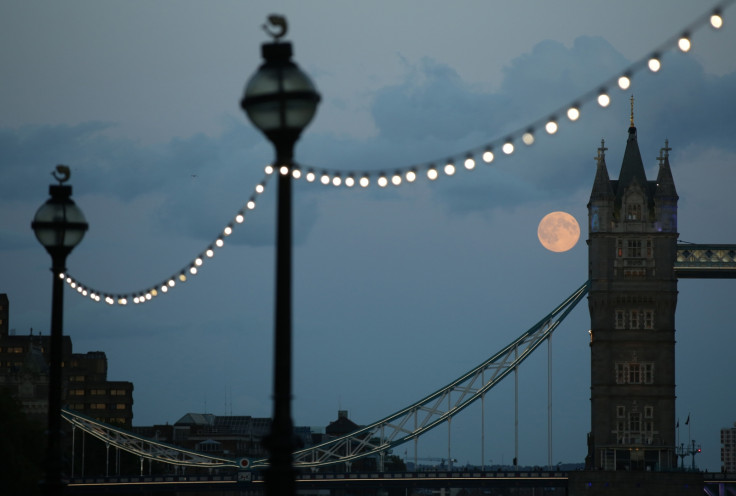Supermoon set to join Spring equinox solar eclipse this month
UK is to experience a rare conjunction of two astronomical events this month.

Britain will see a rare conjunction of two astronomical events later this month around the Spring equinox: a supermoon followed by a solar eclipse.
On the evening of 19 March the Earth and Moon will be as close together as they can get, producing a so-called supermoon. The following day – which is the Spring equinox – there will be a solar eclipse.
A solar eclipse occurs when the moon passes in front of the sun and substantially obscures it.
Depending on an observer's location, between 30% and 98% of the sun's light will be blocked out during March's eclipse. The eclipse will be greater further to the north.
In England more than 80% of the sun will be obscured, while in Scotland this will increase to more than 90%.
The most extensive eclipse in the British isles will take place on the west coast of the Isle of Lewis, where 98% of the sun will be obscured at approximately 9.36am.
In an interview with Mirror Online, George Ward, the treasurer of Thanet Astronomy Group, said he was looking forward to the "double event" of the Supermoon and the eclipse.
"The Supermoon is well worth looking at," he said. "It [the Supermoon] is a rarish event and with binoculars you can see impressive details of the moon's surface that you can't during a full moon because it's too bright. As for solar eclipses they don't happen that often here – the last one was in 1999."
The 74-year-old Margate resident, added: "The Supermoon and the eclipse together makes it a little bit extra special. I will be outside with my camera."
The 1999 eclipse was visible along a line which included the southern UK, northern France, Belgium, Luxembourg, southern Germany, Austria, Slovenia, Croatia and Hungary.
The eclipse later on this month, however, will appear across far northern regions of Europe and the Arctic.
The Norwegian island of Svalbard and the Faroe Islands will experience two minutes and nine seconds of total solar eclipse.
© Copyright IBTimes 2025. All rights reserved.





















